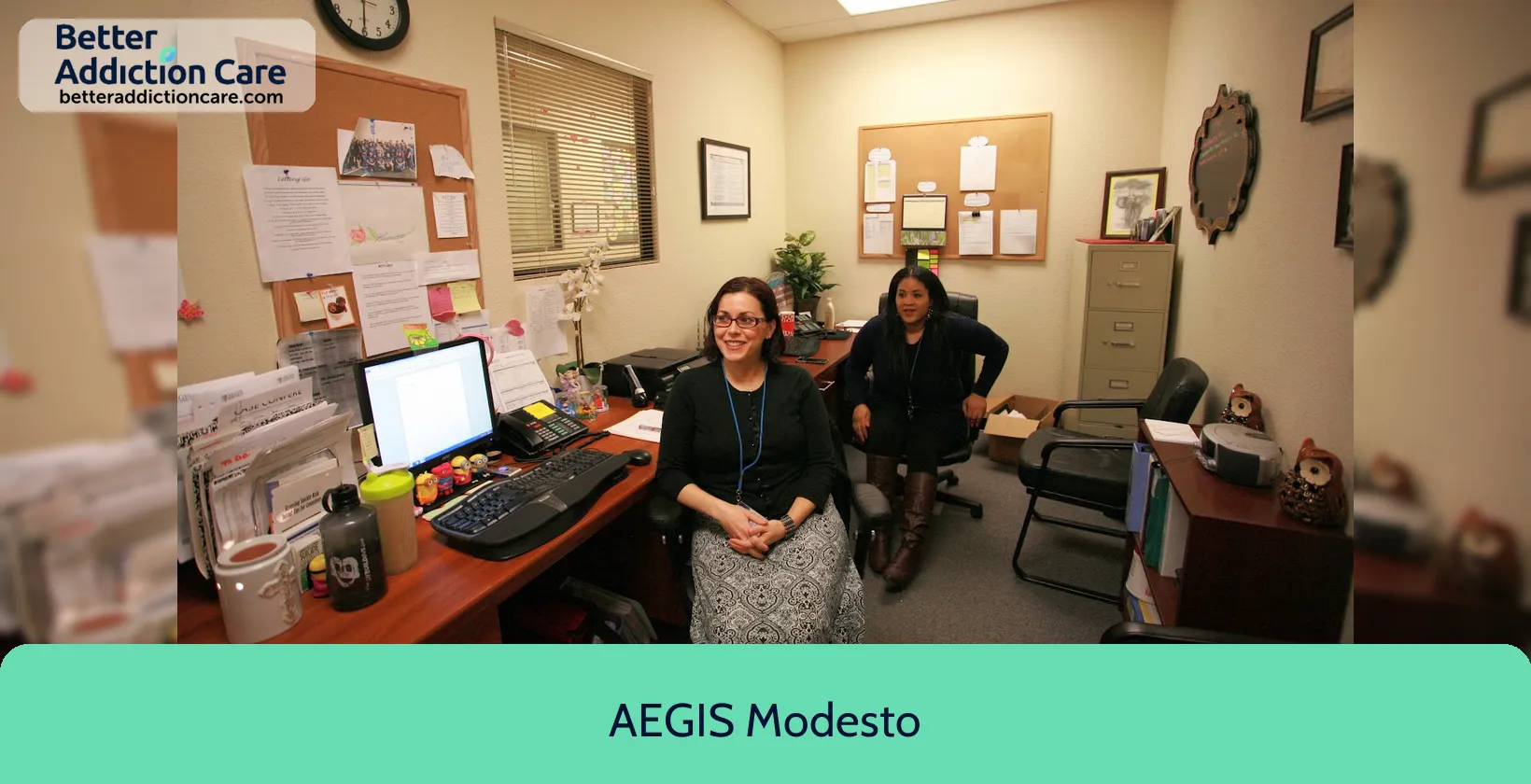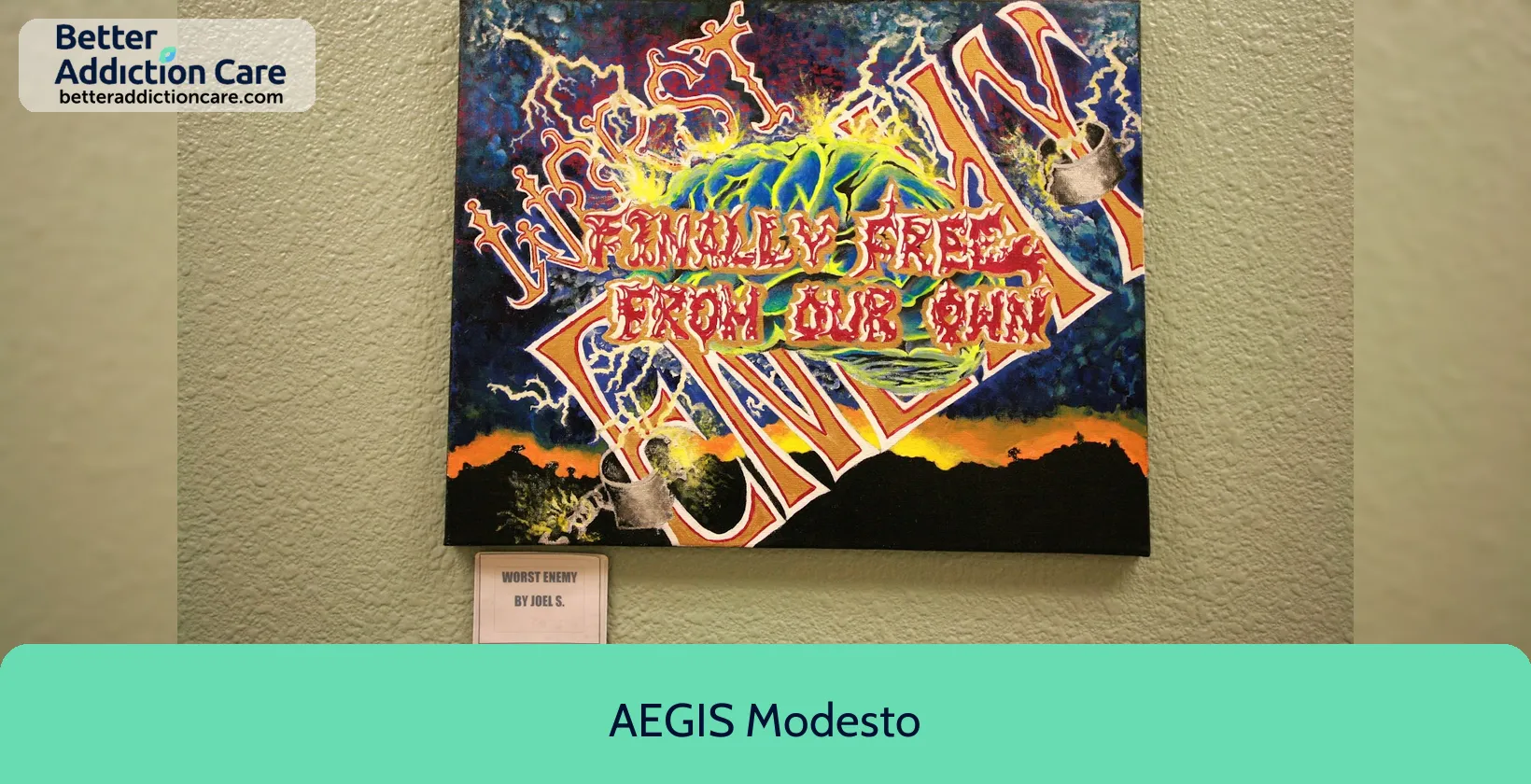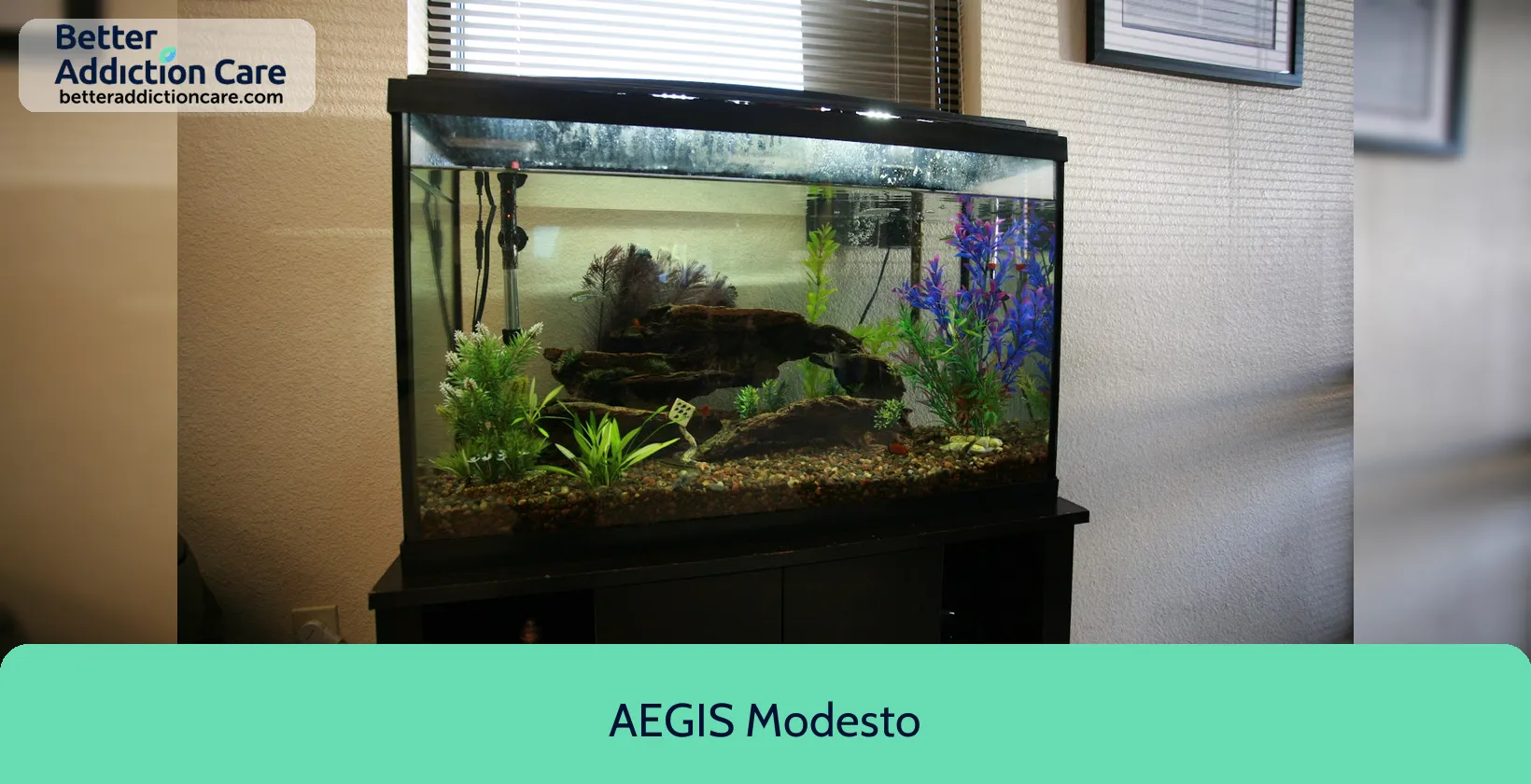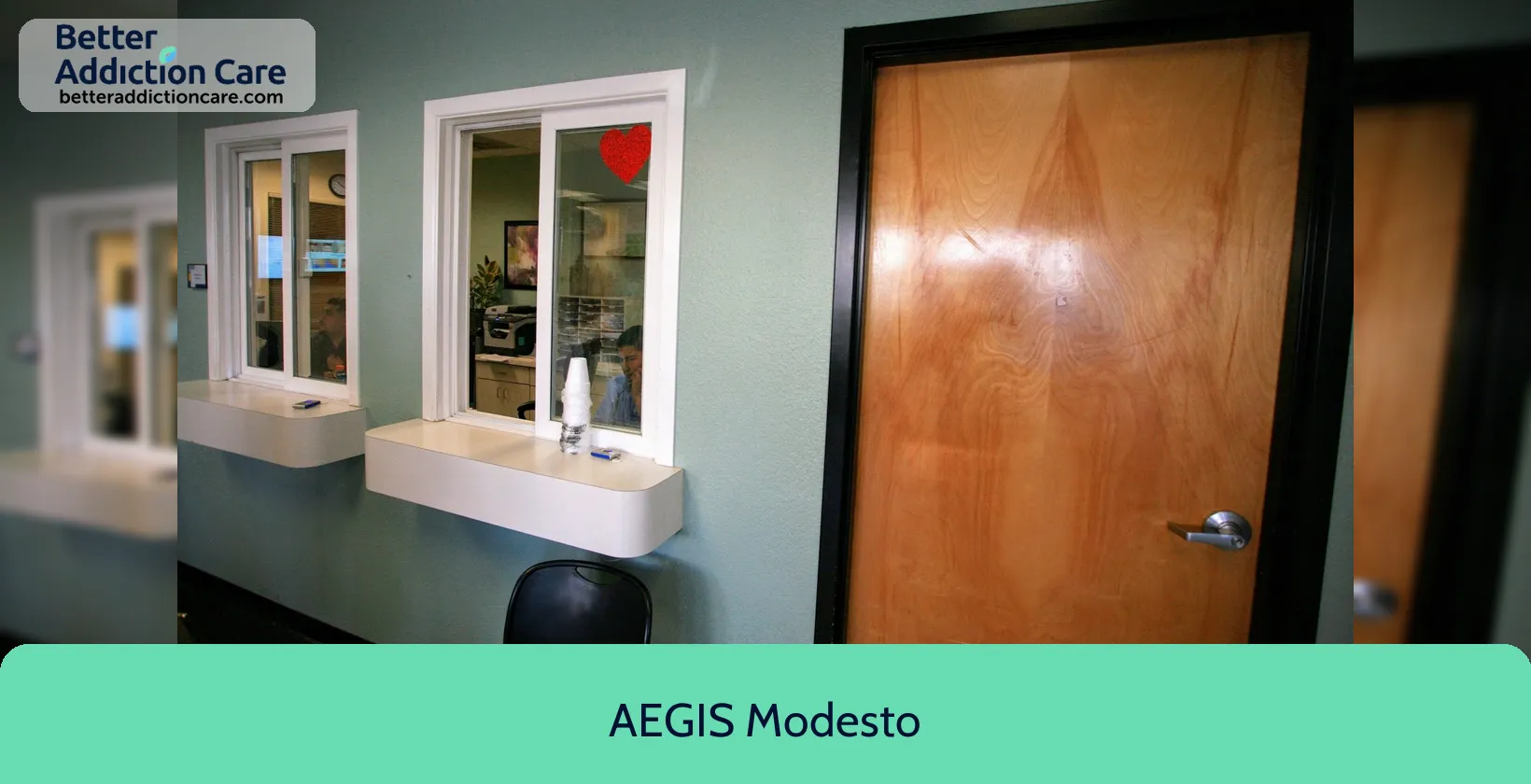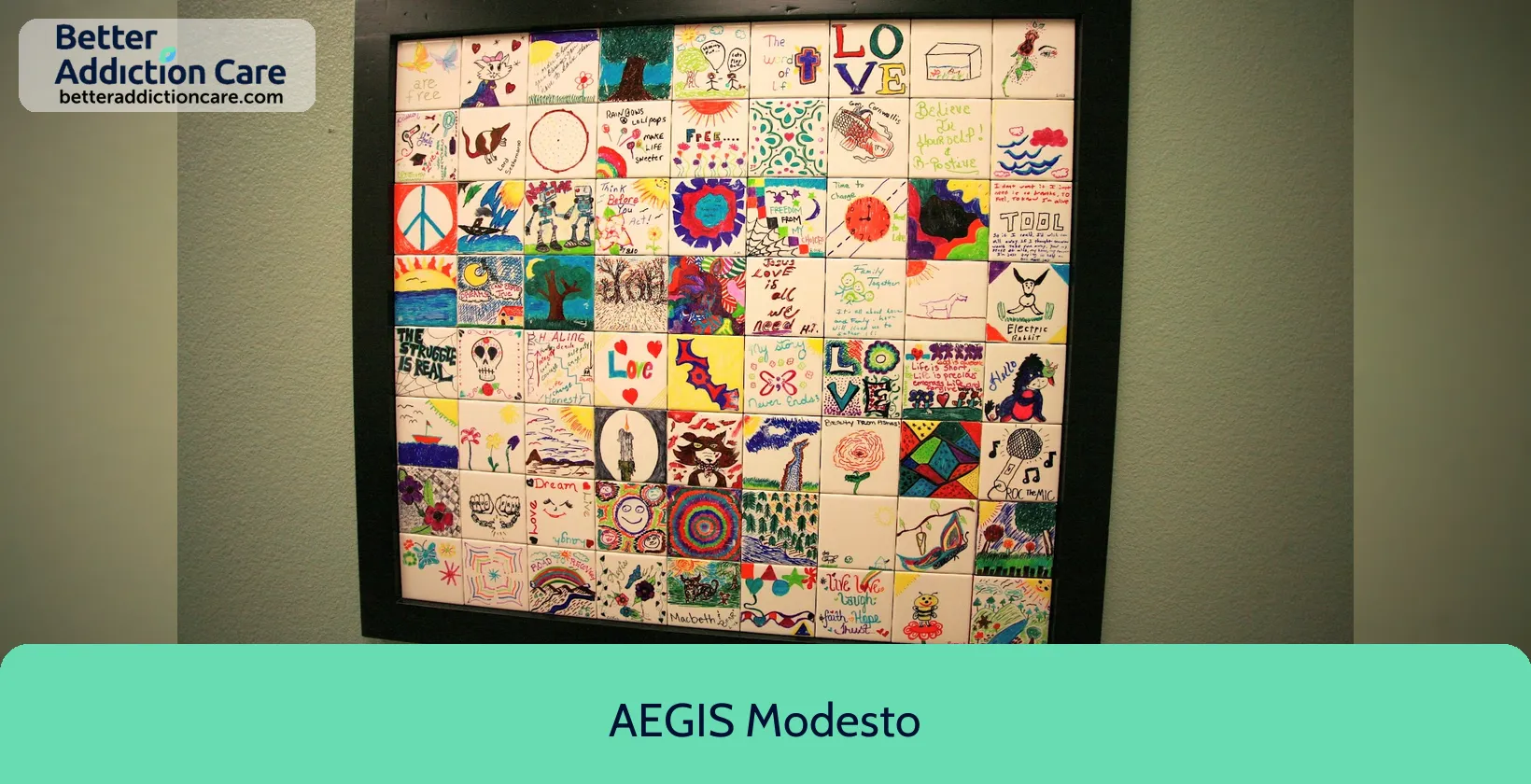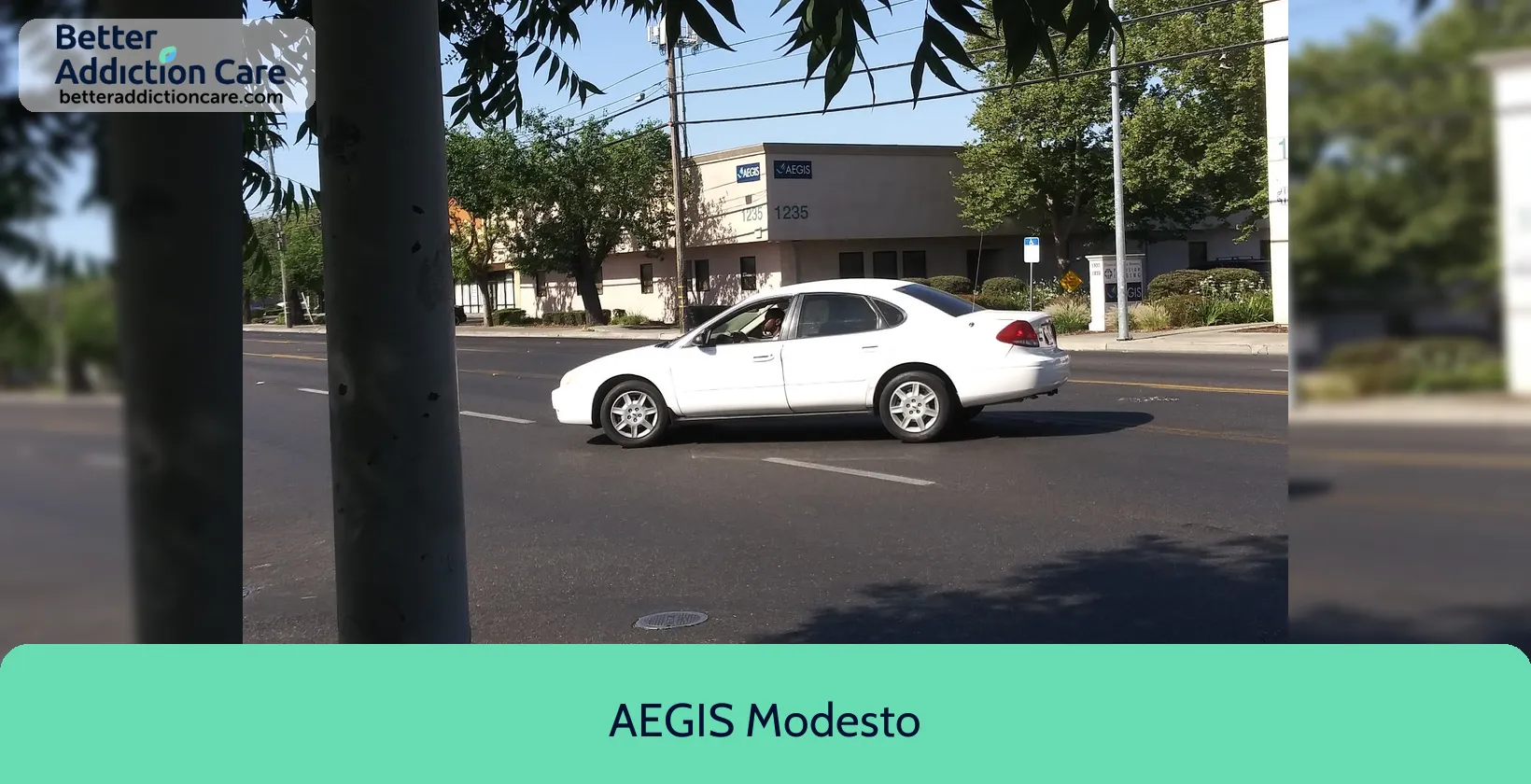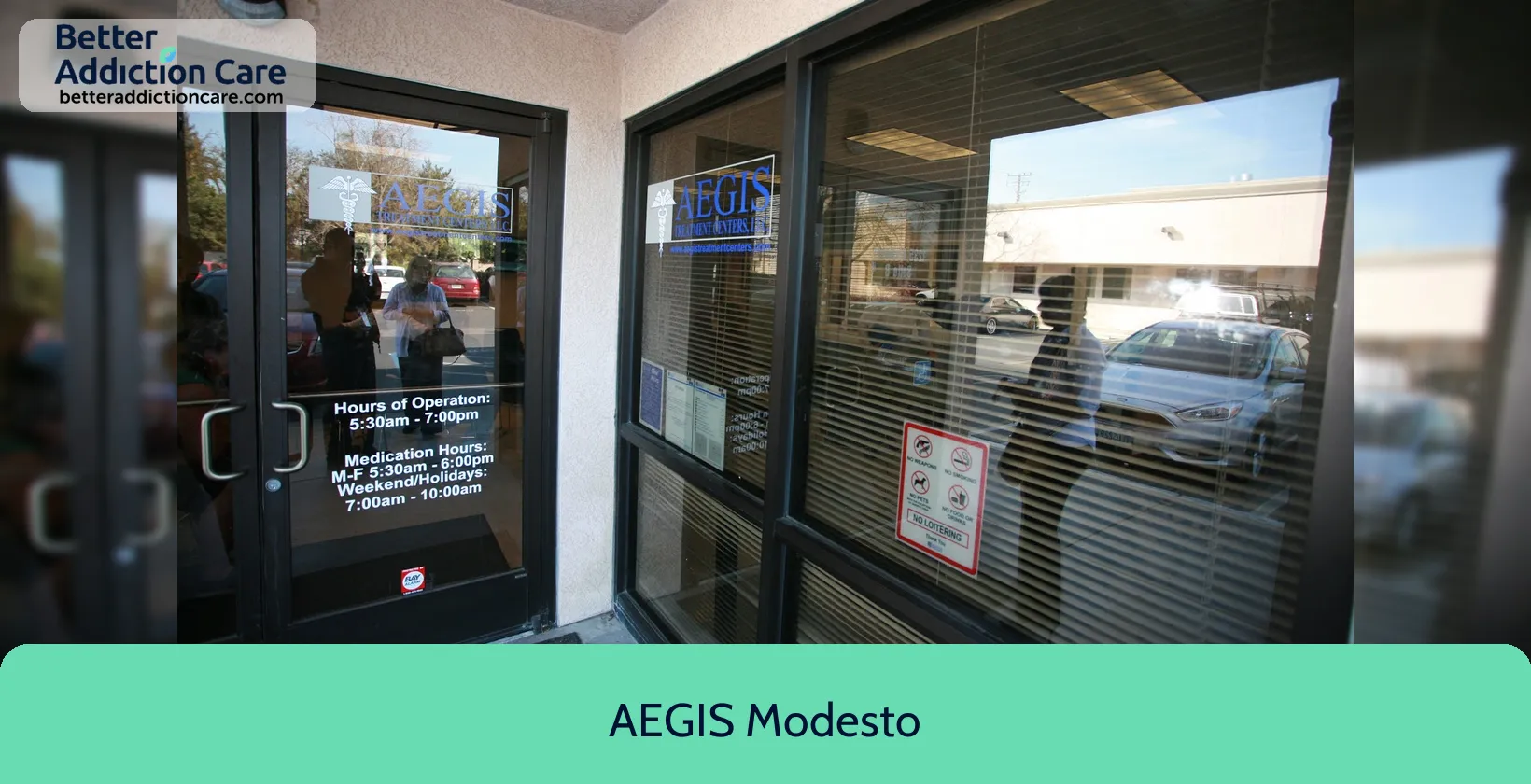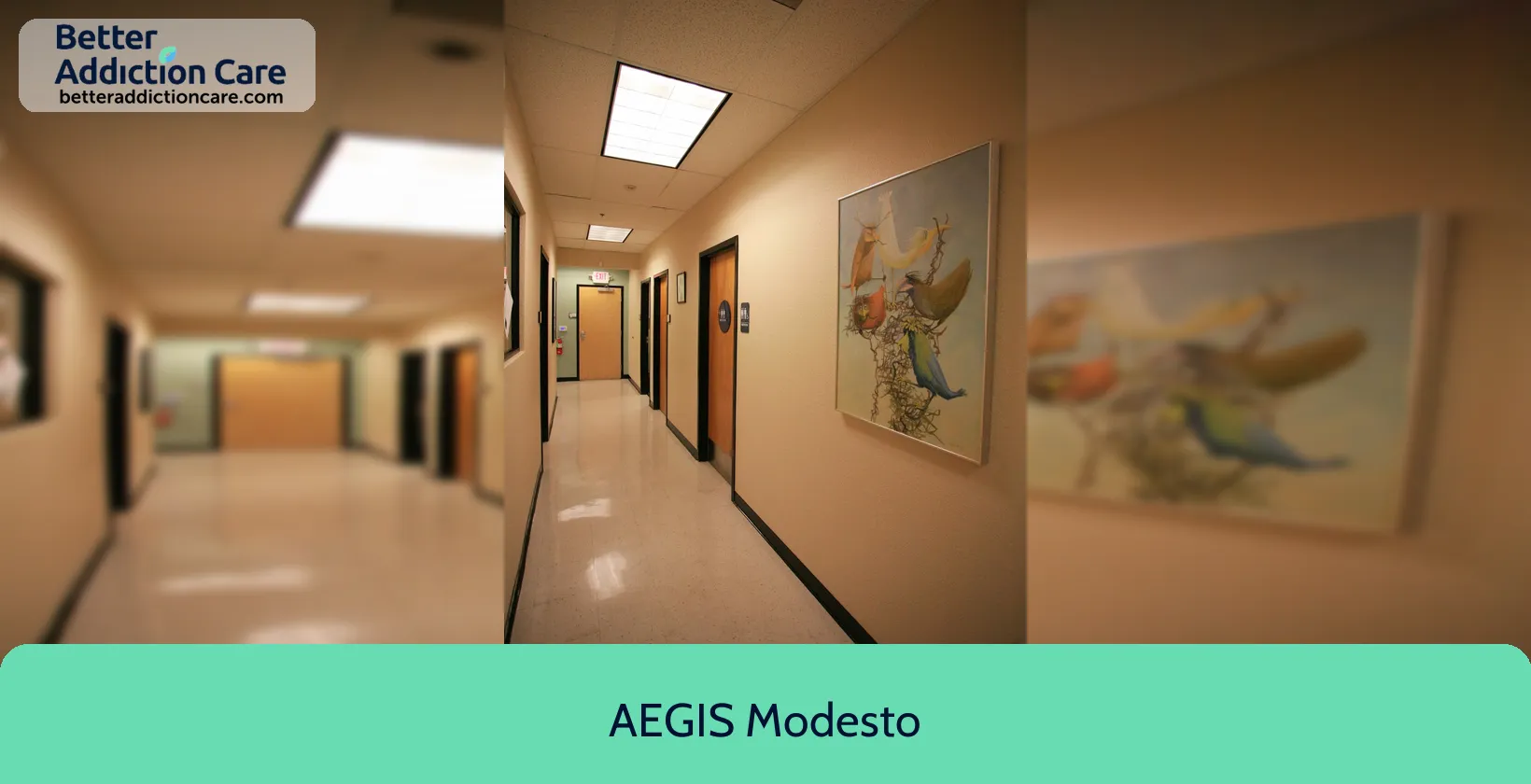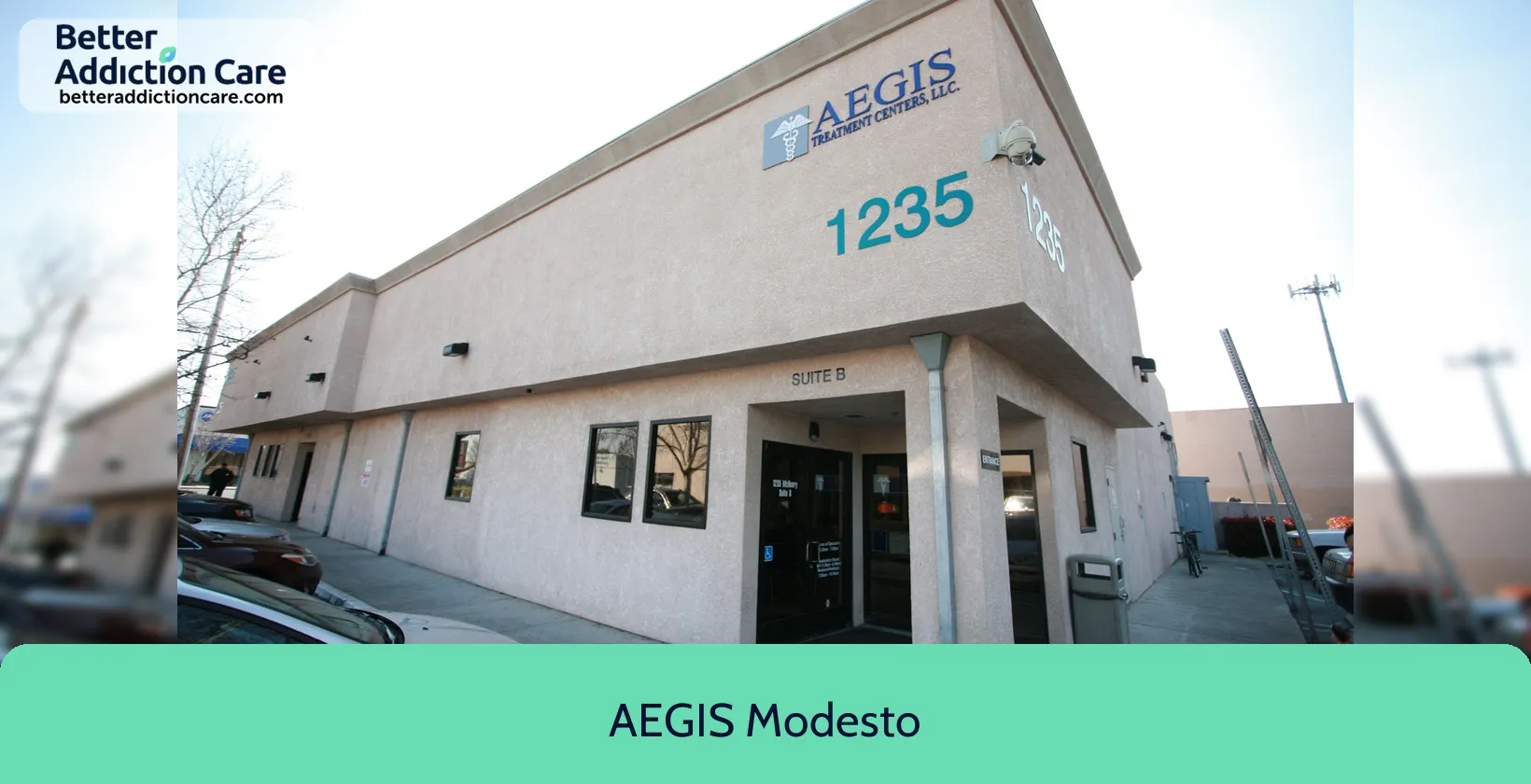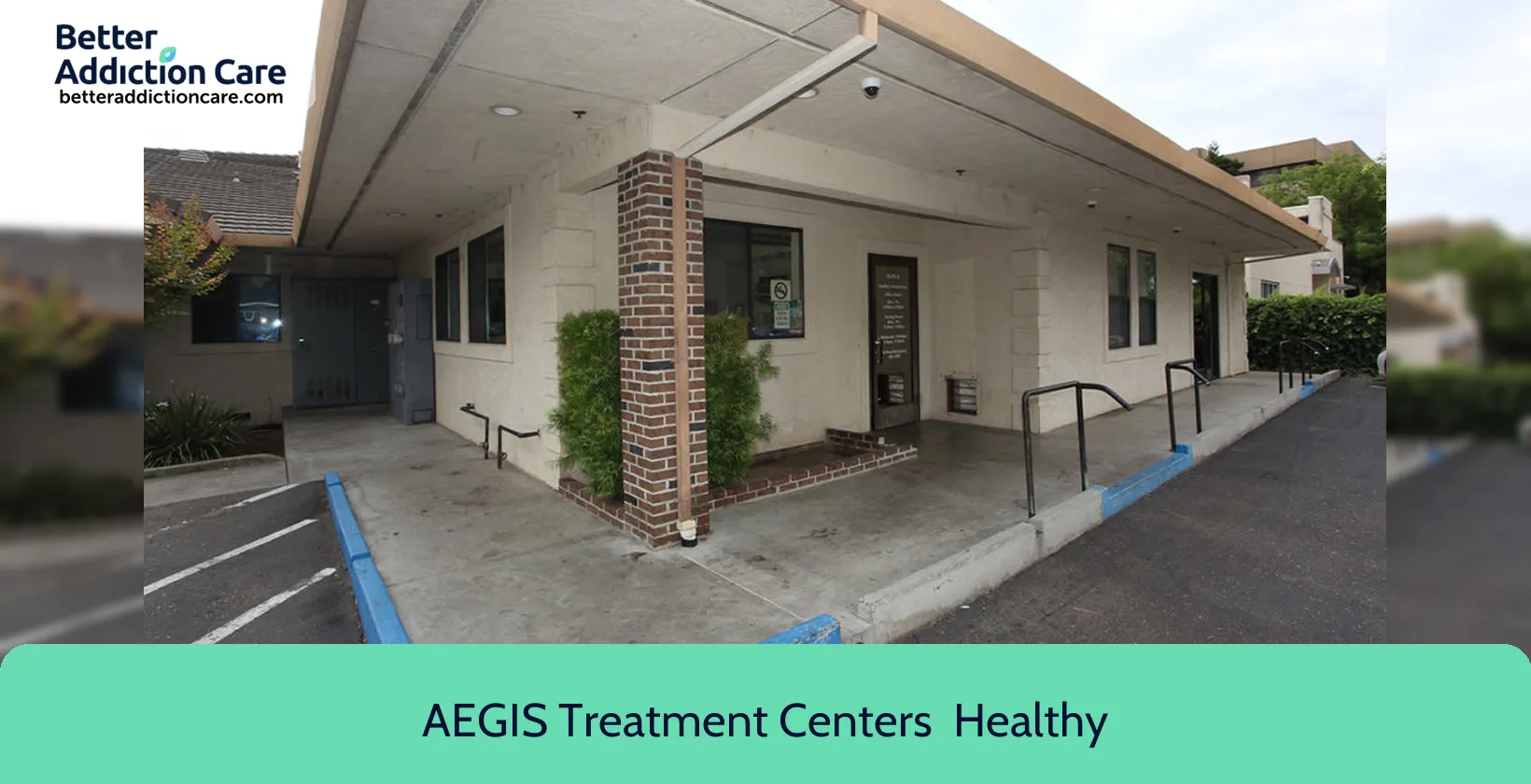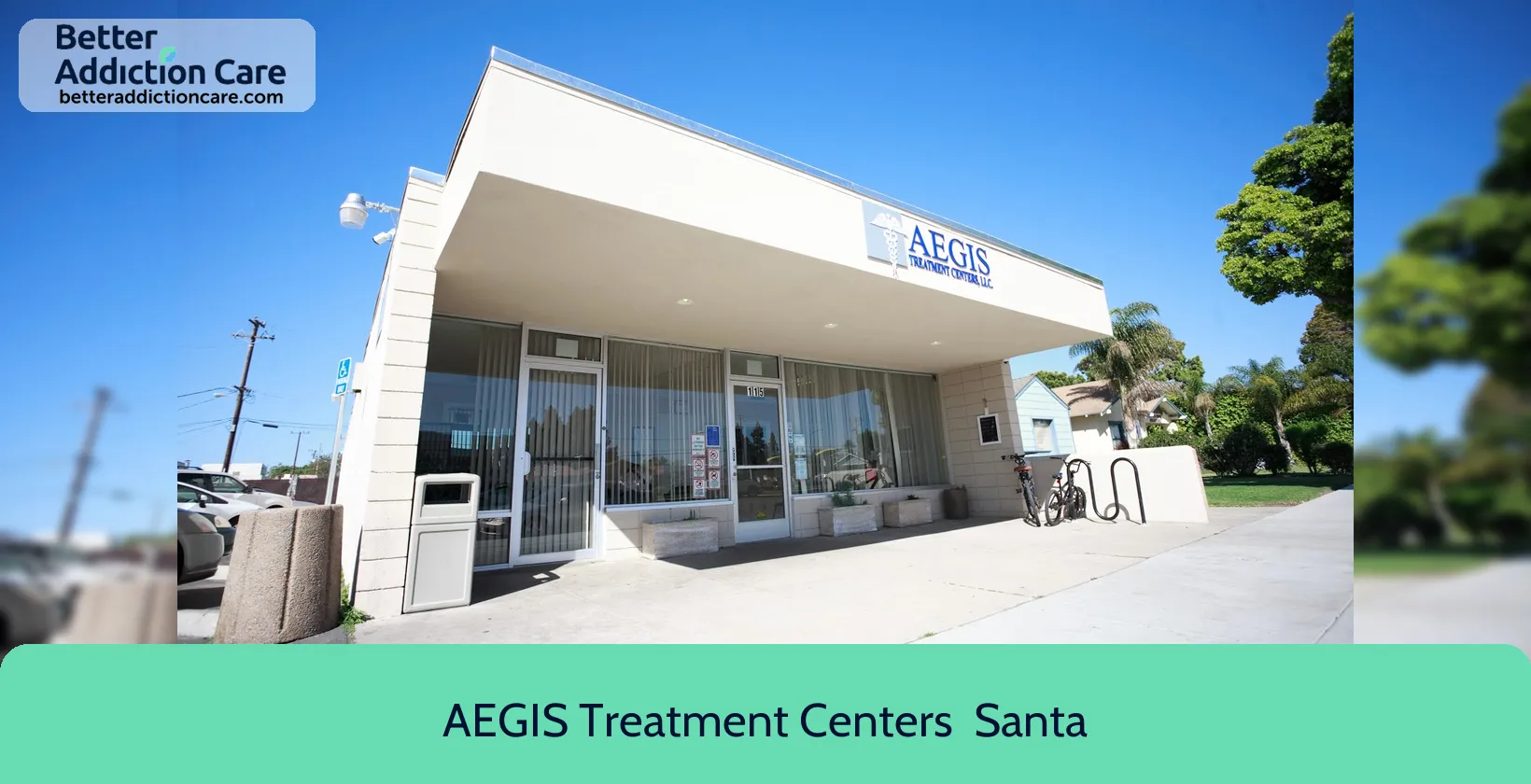AEGIS Modesto
Overview
AEGIS Modesto is an accredited substance abuse treatment center that provides outpatient detoxification, for men and women from 18+ years of age. As part of their special programs, AEGIS Modesto treats clients who have experienced trauma. To help patients achieve sobriety, AEGIS Modesto provides intake assessments. Afterward, patients receive individual psychotherapy, group counseling, and cognitive behavioral therapy during treatment. AEGIS Modesto is located in Modesto, California, providing treatment for people in Stanislaus County, accepting cash or self-payment, state-financed health insurance plan other than medicaid, and private health insurance.
AEGIS Modesto at a Glance
Payment Options
- Cash or self-payment
- State-financed health insurance plan other than Medicaid
- Private health insurance
- Blue Cross and Blue Shield Association
- Cigna
Assessments
- Comprehensive substance use assessment
Age Groups
- Young adults
- Adults
Operation
- Private for-profit organization
Highlights About AEGIS Modesto
6.89/10
With an overall rating of 6.89/10, this facility has following balanced range of services. Alcohol Rehabilitation: 8.00/10, Drug Rehab and Detox: 6.31/10, Insurance and Payments: 6.40/10, Treatment Options: 6.85/10.-
Alcohol Rehabilitation 8.00
-
Treatment Options 6.85
-
Insurance and Payments 6.40
-
Drug Rehab and Detox 6.31
Accreditations
SAMHSA certification for opioid treatment program (OTP):
SAMHSA's Opioid Treatment Programs (OTPs) accreditation is a rigorous recognition process that signifies an OTP's commitment to providing high-quality care for individuals dealing with opioid use disorders. It assures patients, families, and the community that the program adheres to evidence-based practices, employs qualified staff, and maintains a safe treatment environment. This accreditation is a symbol of quality and accountability, offering confidence in the program's ability to support individuals on their path to recovery from opioid addiction.
Treatment At AEGIS Modesto
Treatment Conditions
- Alcoholism
- Opioid Addiction
- Substance use treatment
Care Levels
- Detoxification
- Aftercare
- Outpatient
Treatment Modalities
- Individual psychotherapy
- Group counseling
- Cognitive Behavioral Therapy
- Dialectical Behavior Therapy
- Rational Behavior Therapy
Ancillary Services
Languages
- Spanish
Special Programs
- Clients who have experienced trauma

Additional Locations
Common Questions About AEGIS Modesto
Contact Information
Read our Most Recent Article About Drug Addiction
DISCLAIMER: The facility name, logo and brand are the property and registered trademarks of AEGIS Modesto, and are being used for identification and informational purposes only. Use of these names, logos and brands shall not imply endorsement. BetterAddictionCare.com is not affiliated with or sponsored by AEGIS Modesto.

